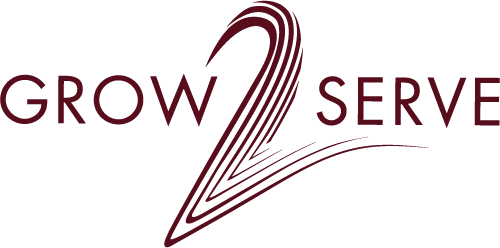About Grow2Serve, How people learn
The Secret Ingredient to Remarkable Learning
My missionary dad taught me to “always get bang for your buck.” Every dollar spent is one step closer to more fund raising. Grow2Serve understands this; Mark and Julie have sent many a support letter over the years.
We want you to get the most out of every dime spent on our courses. So we are giving you the silver bullet; the one thing that is guaranteed to maximize your learning.
I’m talking about engaging with community.
Now most of you are probably thinking “Of course community is important in learning, that’s like saying legs are important for walking.” Yes, it seems obvious and yet this factor is surprisingly absent from most standard forms of education.
Whether in the traditional classroom, reading ministry theory, or at church on a Sunday morning all of us have experienced one-way communication teaching and how hard it is to retain the information. It is in the study groups, book clubs, and Bible studies that information starts to stick. That is the power of community. Engaging with community in and outside of a course will help you get the most out of Grow2Serve.
What Community?
To engage our communities we need to understand who they are. Is our family enough; is it just our coworkers or our church, our neighbors, our city? For something so vital to all of our health, happiness, and success we often spend very little effort defining who makes up our community.
Robin Dunbar, a British anthropologist, proposed in 1992 that human beings couldn’t maintain more than 150 “stable relationships.” He informally classified this as “the number of people you would not feel embarrassed about joining uninvited for a drink if you happened to bump into them in a bar.” In other words, “stable relationships” are people you feel comfortable and safe around.
What does this mean for us as online learners?
Our limited relational capacity means that your fellow learners in our courses are not likely to be part of your Dunbar Number, and that is ok. Those relationships are real, and may turn into long-term connections; but they exist to help you learn.
We encourage you to utilize those relationships intentionally. Ask people hard questions, look at things from their perspective, and most importantly ask for their help. A recent Spiritual Warfare course had 11 participants located in 7 countries and representing 7 distinct ministry organizations. When again will you have access to a focus group of so many people, located across the world, with a shared interest in a particular topic? If you don’t take advantage of that kind of diversity of experience and opinion you are probably short-changing yourself.
Stronger Together
The people in your Dunbar number aren’t off the hook. Your family, friends, and ministry are even more vital to learning.
You have likely heard of Maslow’s Hierarchy of Needs. Basically if you don’t feel safe and loved you can’t focus on esteem and self-actualization (and guess what effective learning falls under).
Mobilize your Dunbar Number folks to help you; first in your base needs for love and support but also in your learning. Your community is the best tool to process the information you are receiving. Your fellow online learners help you see outside your context; your close relationship help you plug lessons into your life and mission.
Bring up lessons in casual conversation, try instituting new systems based on your learning, or even try repeating activities at home. On the course subject, you may be the spearhead of your ministry, but a spear point is only deadly with the weight of the whole spear behind it.
So What?
If you are intentional about engaging with community both in and outside your course we guarantee double or triple your takeaway value.
You will better retain the lessons, get a truly worldwide perspective, and find it easier to immediately implement what you have learned. Plus some of the course will rub off on your friends, family, and ministry; no extra charge.
How is that for bang for your buck!?


